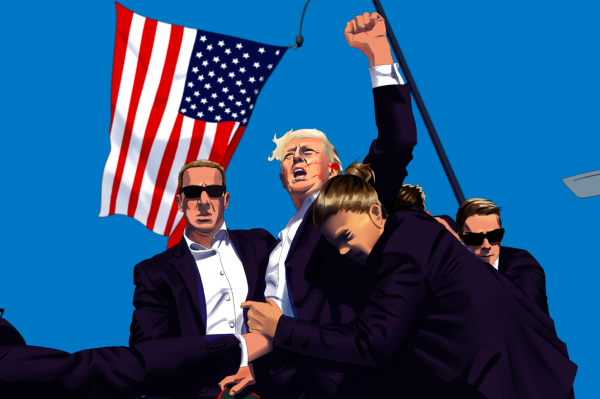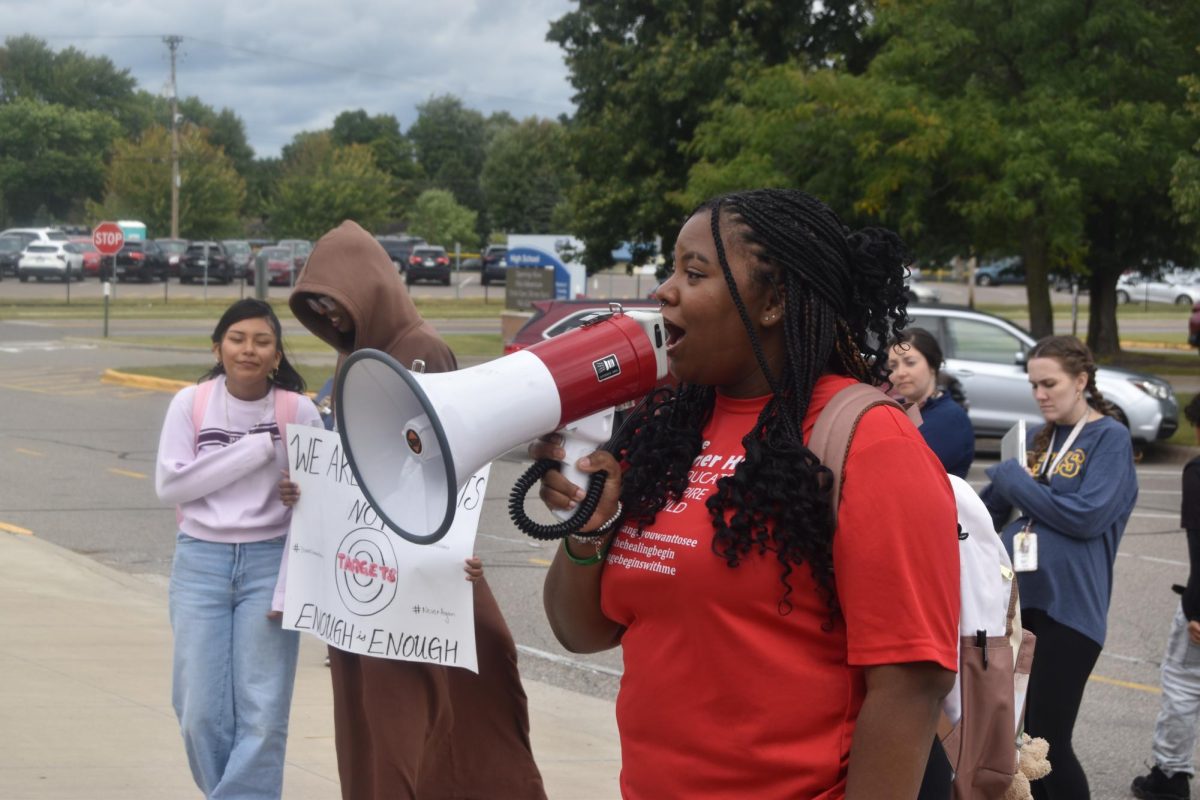Main Election Issues
According to Statistica and Pew Research Center, the economy and inflation were the most significant issues to voters this election. Immigration and national security really only mattered to a slight majority of voters which ended up being the majority to push Trump to win. Although, for Trump supporters, the issue is secondly as important to the economy, immigration wasn’t even in the top 5 concerns for Harris supporters. So, why did Harris lose? Major news outlets like Vox suggest that her campaign was focused too much towards the center, instead of leaning in and securing her democratic and far left voters. Although Israel’s war in Gaza was a largely divisive issue for democrats, polling from Blueprint does not report it as a top reason swing voters were against Harris, but support for Palestine could have potentially won her votes from third party voters and left leaning non-voters. Others wonder if voter backlash could have been due to sexism and racism, which is difficult to track because voters may not want to disclose that as their reason for voting against Harris.

Lack of voting
In many recent elections, the Pew Research Center found that less than half the population of eligible voters end up actually voting in the presidential election. Including this year’s, the last two elections have had historically high voter turnout rates, with 2020 coming in at 67% of eligible voters casting their ballot and this election with 65%. According to a FiveThirtyEight/Ipso survey conducted with thousands of eligible voters to find out why people just don’t vote, the majority of respondents reported that voting barriers were the number one reason why. Long lines, missing registration deadlines, struggles to find voting locations and not carving out the time due to work are barriers that many Americans face when voting. All of this leads to the question: Why isn’t election day a national holiday in the United States?
Abnormal Occurrences
This year has been full of unexpected events leading up to the election. From President Joe Biden dropping out of the race and endorsing Vice President Kamala Harris to become the democratic nominee to multiple assassination attempts on President Donald Trump, this has been an incredibly notable and historically unique year in the United States political world. Trump will be the second ever in history to be in office for two non-consecutive presidential terms (after Grover Cleveland), as well as the first ever convicted felon in office and the oldest president in the history of the United States.

Trump Wins the Election
Donald Trump was declared the winner of the 2024 presidential election after winning the ten electoral votes in Wisconsin, a swing state that has trended as the deciding factor of multiple presidential elections. Trump won with a total electoral vote count of 312 compared to Harris’s 226. Trump declared at a rally at Madison Square Garden in New York on October 27 that on his first day, within the first couple of hours, he would shut down the U.S. border with Mexico and “launch the largest domestic deportation operation in American history,” which he reiterated on social media platform Truth Social on November 18. The American Immigration Council estimates that such an operation would cost billions of dollars and would drastically affect the economy, especially industries like construction, hospitality and agriculture, which would lose millions upon millions of workers.
Trump’s First Term
Donald J. Trump’s first term as the 45th President of the United States, from January 20, 2017 to January 20, 2021, was marked by significant controversy, unprecedented events, and sweeping policy changes. Trump, a real estate mogul and reality television star with no prior political experience, began by winning the presidency as a Republican, defeating Democratic candidate and former U.S. Senator from New York Hillary Clinton in a highly contentious and divisive election. His tenure was characterized by a distinctive approach to governance, a focus on economic deregulation and a foreign policy marked by unpredictability.
In foreign policy, Trump adopted an “America First” stance, leading to strained relationships with traditional allies and reevaluating international agreements. He withdrew the U.S. from the Paris Climate Agreement and the Iran nuclear deal, arguing that these agreements were unfavorable to American interests.
Economically, Trump’s administration prioritized deregulation and tax cuts. The Tax Cuts and Jobs Act of 2017 was a significant legislative achievement, reducing corporate tax rates and individual income taxes. Proponents argued that these measures spurred economic growth and job creation, while critics contended that they disproportionately benefited the wealthy and increased the federal deficit.
Student & Staff Reactions:
“I would have voted for Harris-Walz because at least with Walz I know he has a track record in Minnesota of favoring policies that help ordinary working people. Especially with things like the free college tuition program for middle- and low-income households, maybe Walz would have influenced Harris’s policies in the same way. I wouldn’t support Trump because he has done things before as president that I think are harmful to people, especially to women and immigrants like the Muslim travel ban and overturning Roe v. Wade. But the two-party system in this country is a problem. I can’t fully support either because neither will take action to end the genocide in Gaza.” – Sakeena Janneh (12).
“The election results are disappointing, but more than anything embarrassing. It’s embarrassing to witness the ideals of those in power in our government. Elon Musk joining, and the HHS leader being an anti-vaxxer scares me and creates uncertainty about our future. I think the result of Trump winning is horrific, but there’s more than just his supporters to blame. The democratic party set up Kamala to fail. The switch being so late in the election didn’t give her the opportunity to make as big of an impact and spread her ideas. She didn’t have enough time to use her voice. This election was and still is such a monumental moment in history, and the future seems unclear now.” -Daphne Kleinschmit (11)
“I can’t say I feel great about the election. I am unsure what my future will look like not only as a woman but as a Black American. With all the news about Project 2025, abortion bans and now Trump in office I feel my rights are at risk. I can only hope that what he says does not match up with his actions. I also think this election has really impacted the way I see politics. I guess I always had a small part of me that thought our representatives and congresswomen and men would pick the choices best for the people but now part of me is gone. I have come to the terms that the fight for social justice will never end and America will always favor a white man.” -Melat Mezgebe (12)
“One reason people don’t vote is they don’t think it will make a difference – they can’t see the connection between voting and their daily lives. They get disillusioned when they do vote and they don’t see immediate, dramatic changes in their personal conditions. An additional factor in 2024 may have been misinformation campaigns on social media. Foreign countries and PACs run by billionaires spread lies about what the US government was going to do. Trump’s nominations for government administration are definitely unique — focusing on loyalty and celebrity rather than on qualifications and experience. However, his choices are consistent with his campaign promises to run the government differently by hiring administrators who are outside the normal DC bureaucrats.” -CHHS Social Studies Teacher Mr. Dan Tschida
Timeline:
- June 27: Biden and Trump have their first campaign debate that is held by CNN.
- July 2: U.S. Representative Lloyd Doggett becomes the first Democratic member of Congress to publicly call for President Biden to withdraw from the race, followed by many more.
- July 13: Trump is shot in the ear in an assassination attempt at a campaign rally held in Butler, Pennsylvania. The shooter and one bystander are killed while two others are injured.
- July 15: Trump announces U.S. Senator JD Vance as his vice presidential running mate, shortly before being confirmed as the Republican presidential nominee.
- July 21: Biden announces his withdrawal from the race, necessitating the start of an “emergency transition process” for the Democratic nomination. Vice President Kamala Harris announces her candidacy for president.
- August 6: Kamala Harris announces Governor Tim Walz as her vice presidential running mate.
- September 10: A second campaign debate, the first between Trump and Harris, is hosted by ABC in Philadelphia.
- October 1: A vice presidential debate between Vance and Walz is hosted by CBS in New York City.
- November 5: Polls across the United States open for voters to cast their votes on election day.
- November 6: Donald Trump and JD Vance win the election with 312 electoral votes, including all seven swing states.










